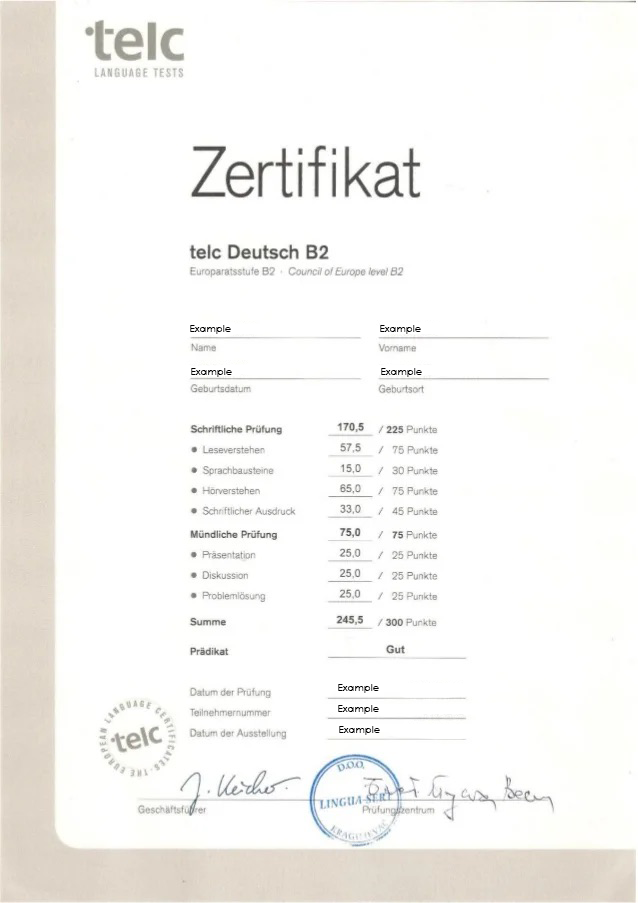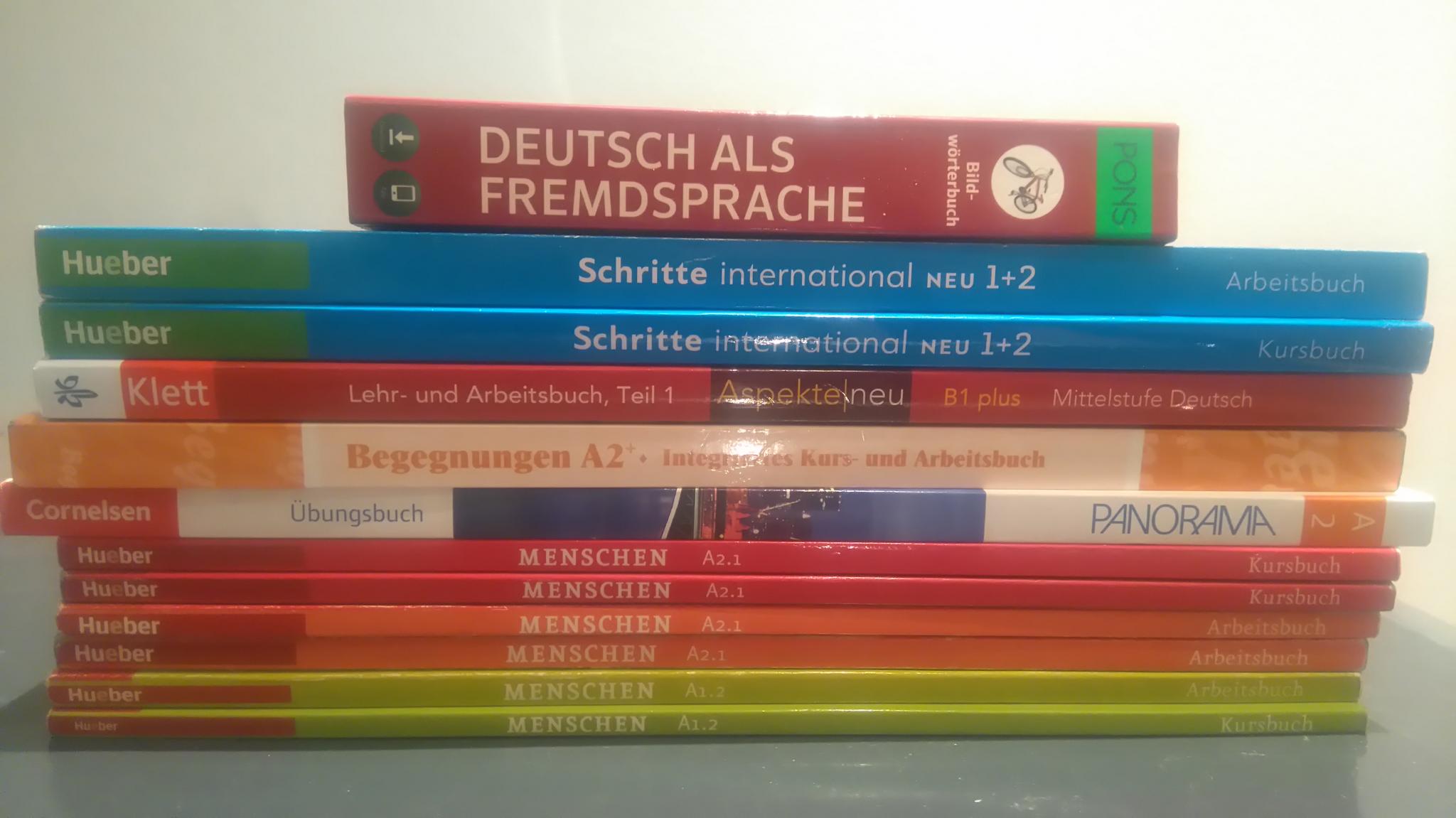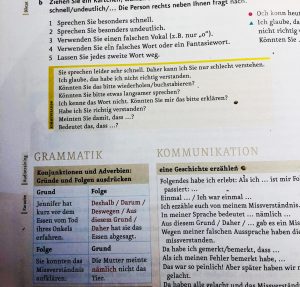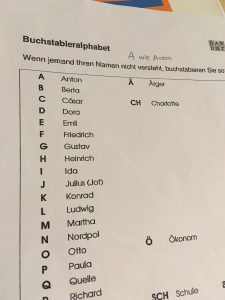Blog 9 from Alejandra
Today I want to talk about the B2 Test. I will do it in a bit less than a month. I am a bit worried, mostly about the speaking test. I registered for the TELC test and it consists of two big parts, the speaking test and the writing test. In the speaking test, three scenarios will be played out. The first one I have to talk about a specific thing for 1.5 minutes (a book, a movie, myself, etc) and at the end of my speech, the person who is listening to me (which is also someone taking the test with me) has to ask me two things regarding my presentation. I have to answer them. Part of the exam is that I also listen to this participant’s speech and ask him at the end two questions. Another part of the test is to plan something with this person (an event for example) and to discuss a specific point of view. That is for the speech part of the test. The other big part, consists actually of more things but in general it is called the writing test. First, comes the hearing test, where one will listen to three different scenarios and have to answer general and more specific questions. For example, what were the people talking about or specific things like at what time does a flight leave or at what platform does a train leave. Then the grammar part of the test, where one will put their knowledge of German grammar to the test. Of course I am terrified of this one haha. Then comes the reading part of the test, again there are 3 different areas to be evaluated (general understanding about something and other specificities) and at the end, the writing part of the test. We have to write a letter about a complaint or something to ask for more information about a specific thing. I hope I pass the test, I have been studying so much, but well I am still finishing my B2.2 course, still for a week. I’ve been going to Huggendubel to study. It’s a lovely department store like Barnes and Nobles. I also attached a photo with an example of the Telc Certificate. Wish me luck!!


Bis bald!
Ale









